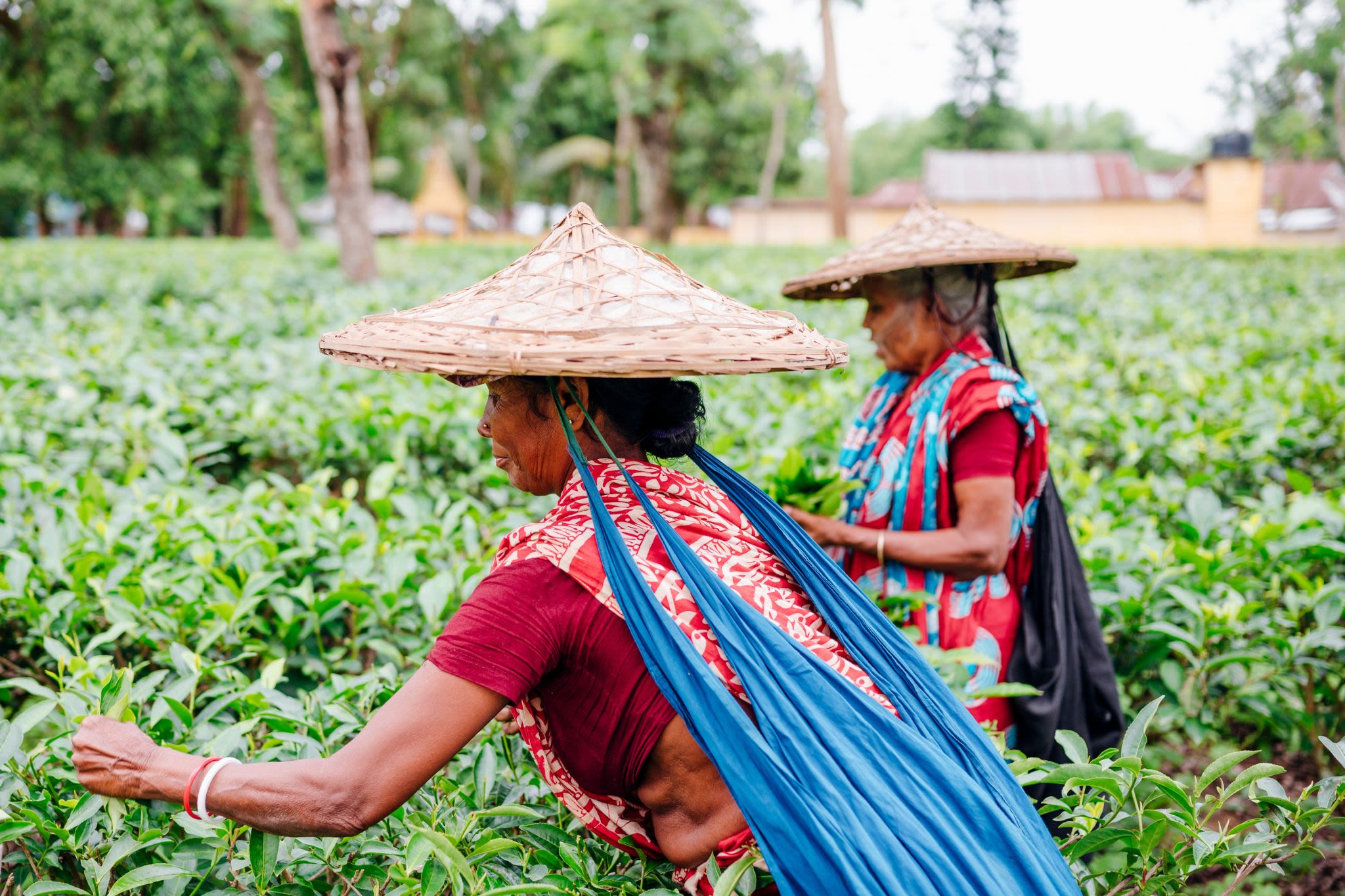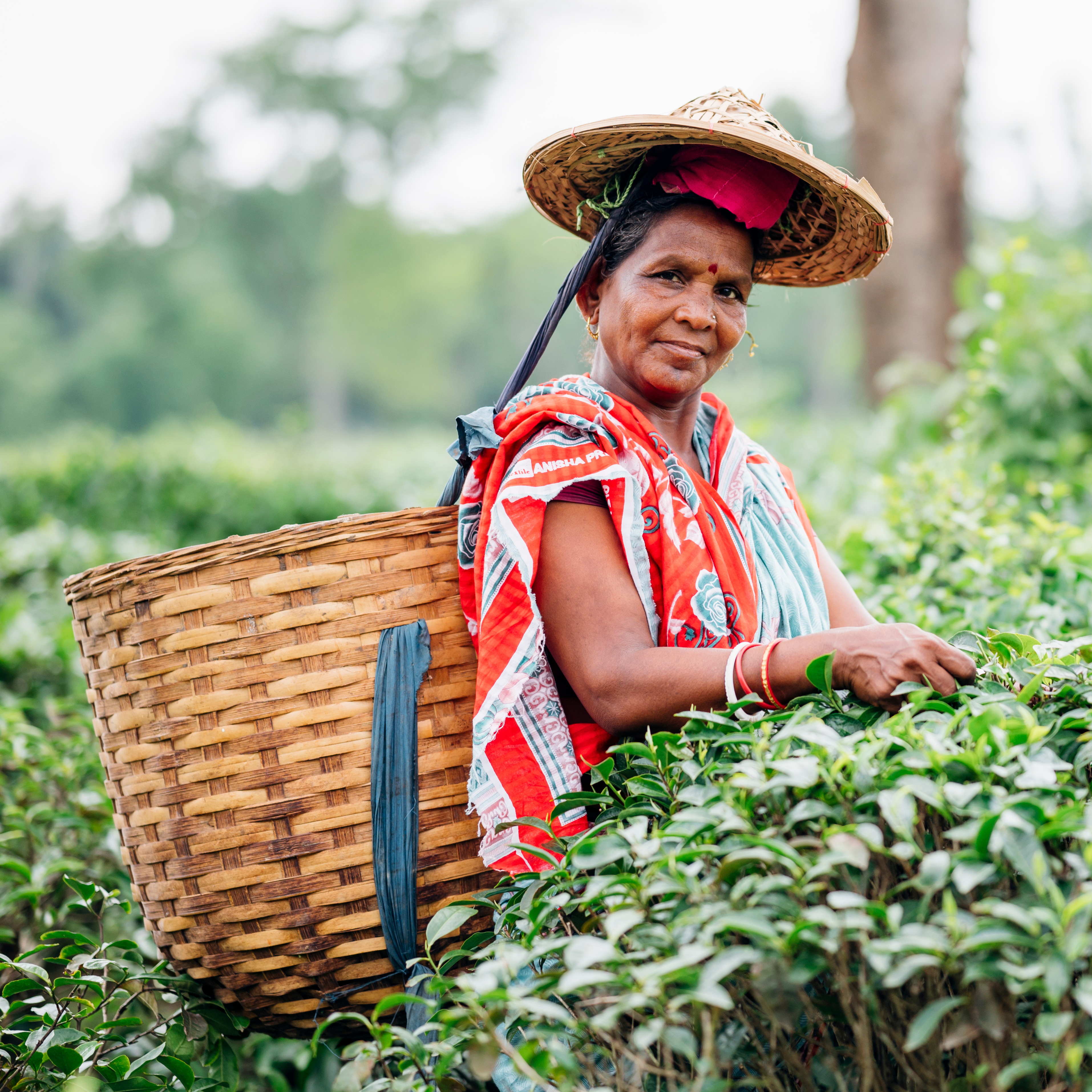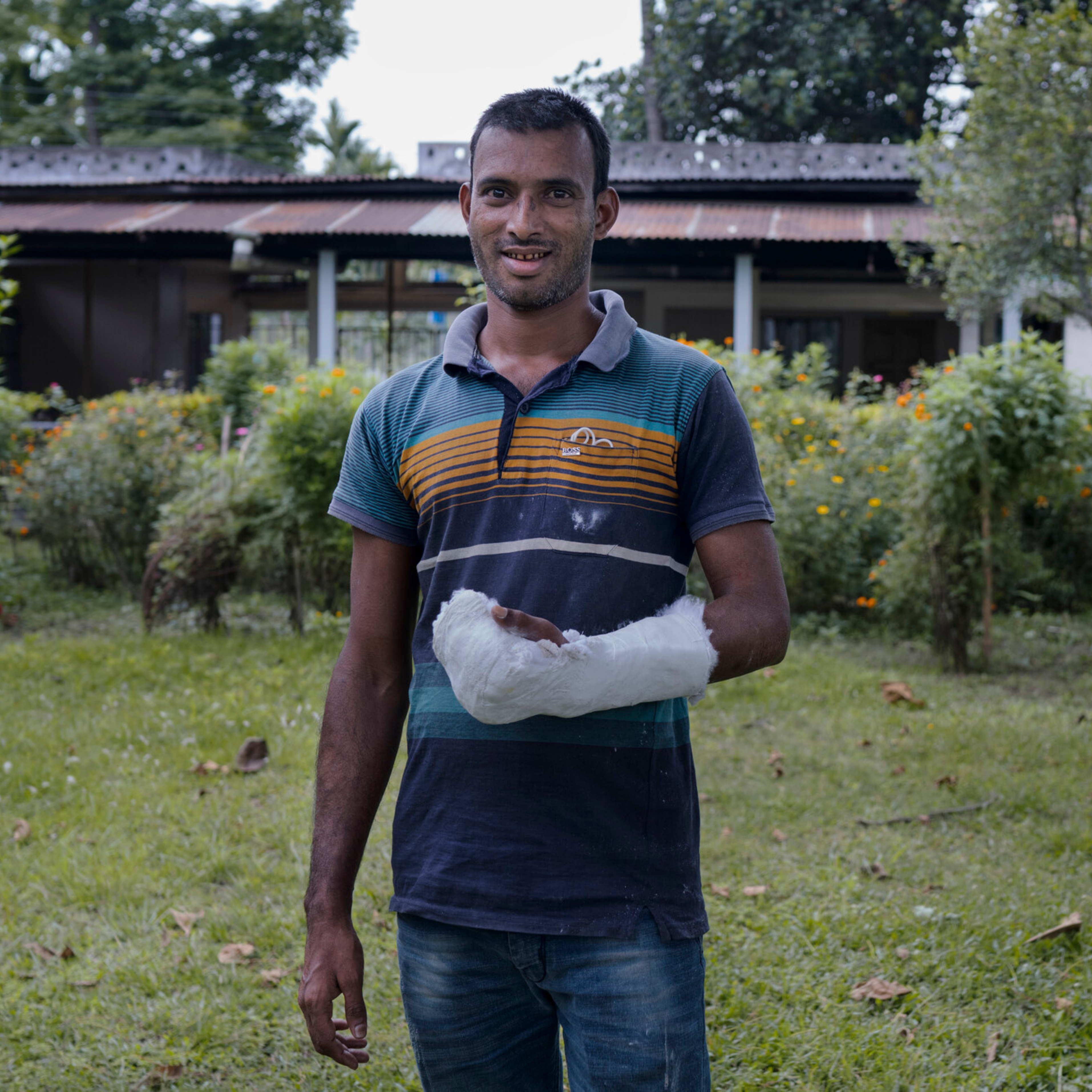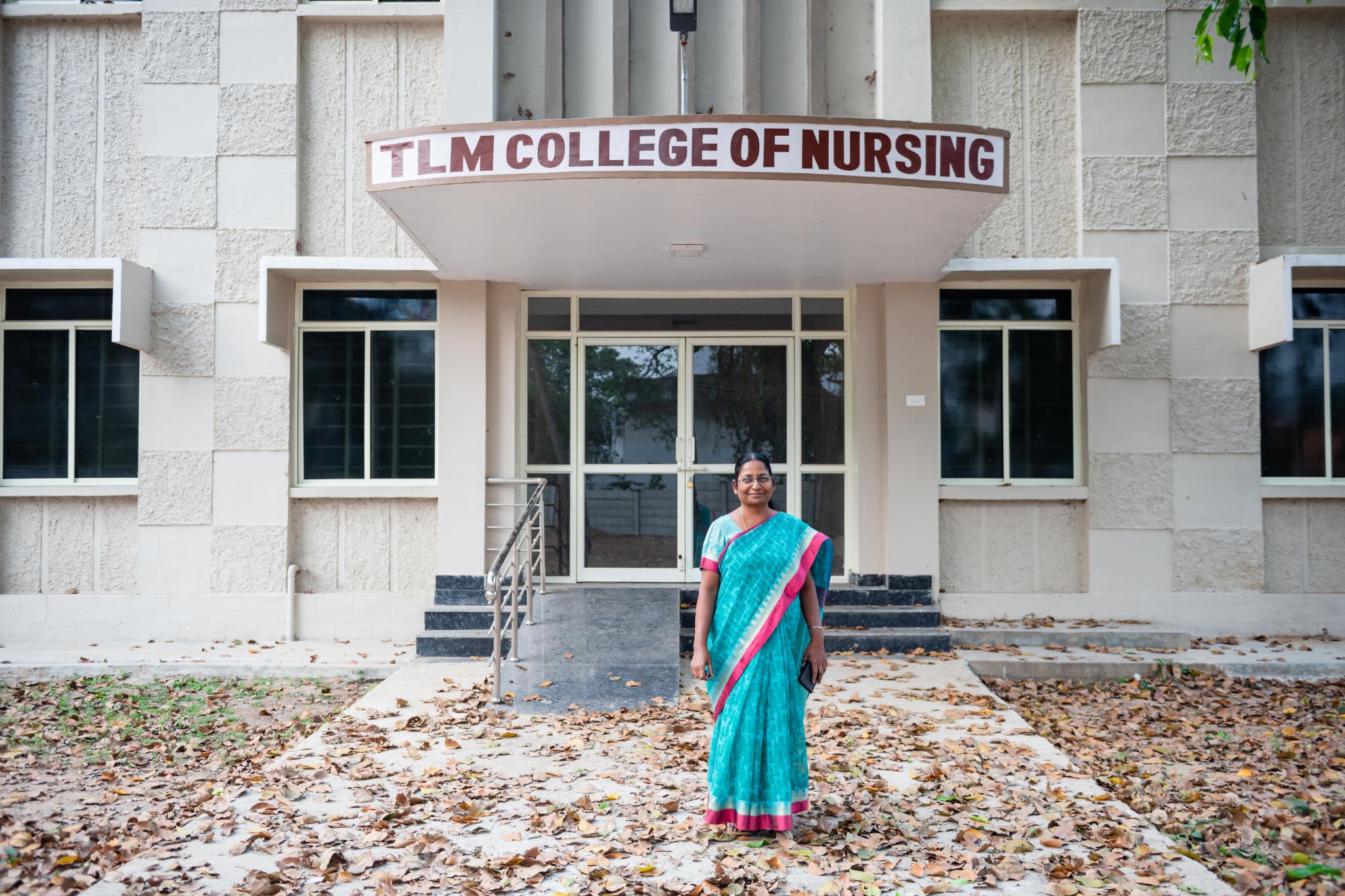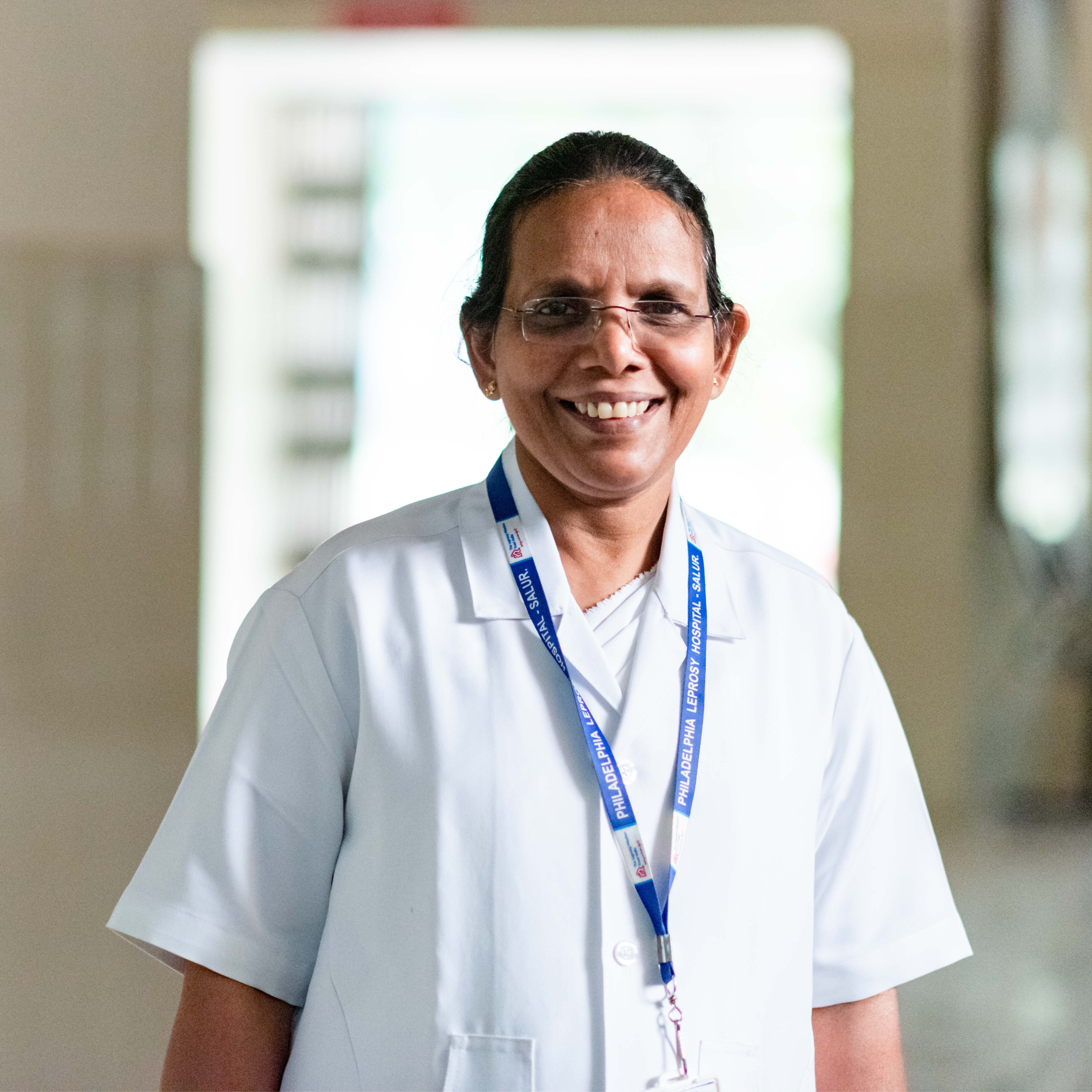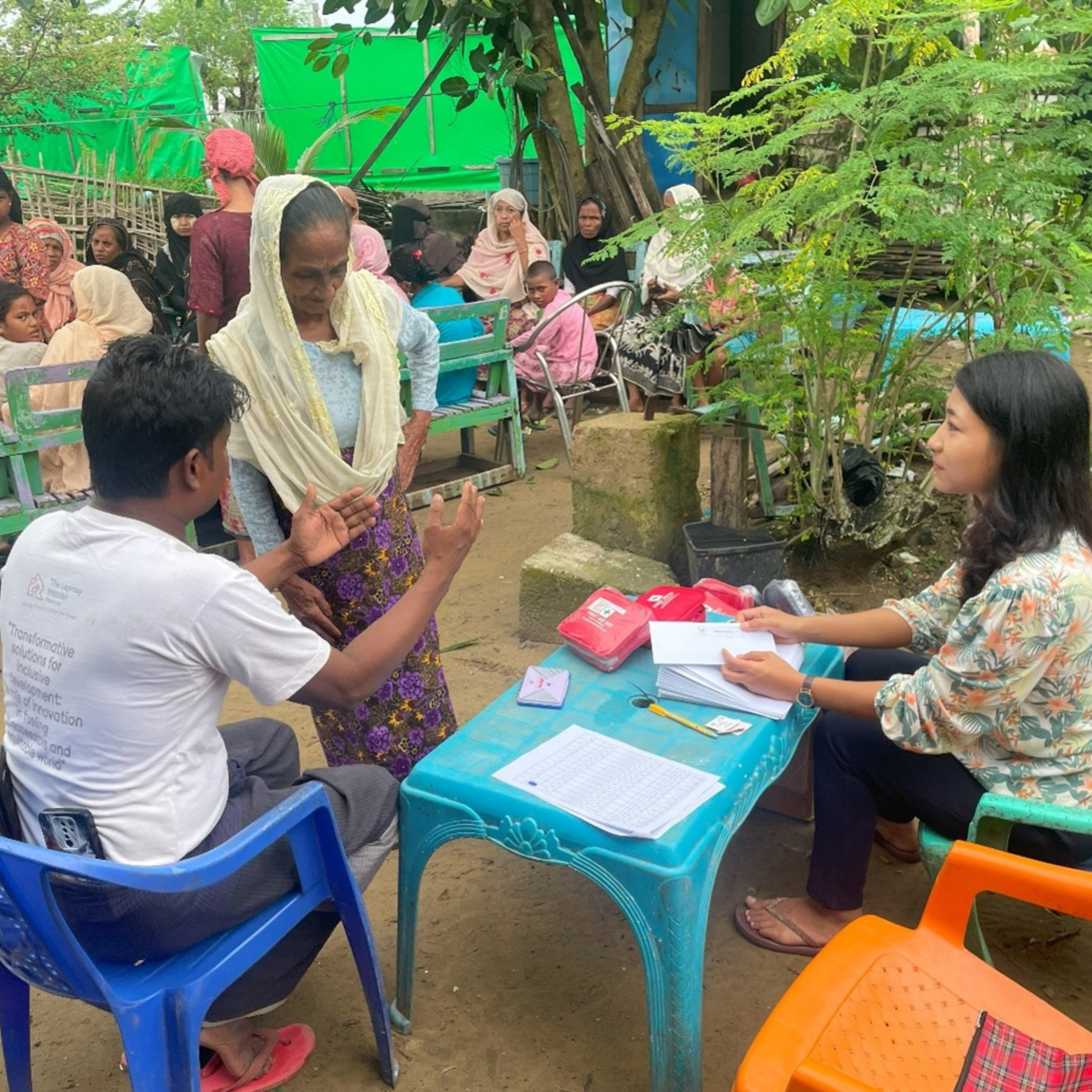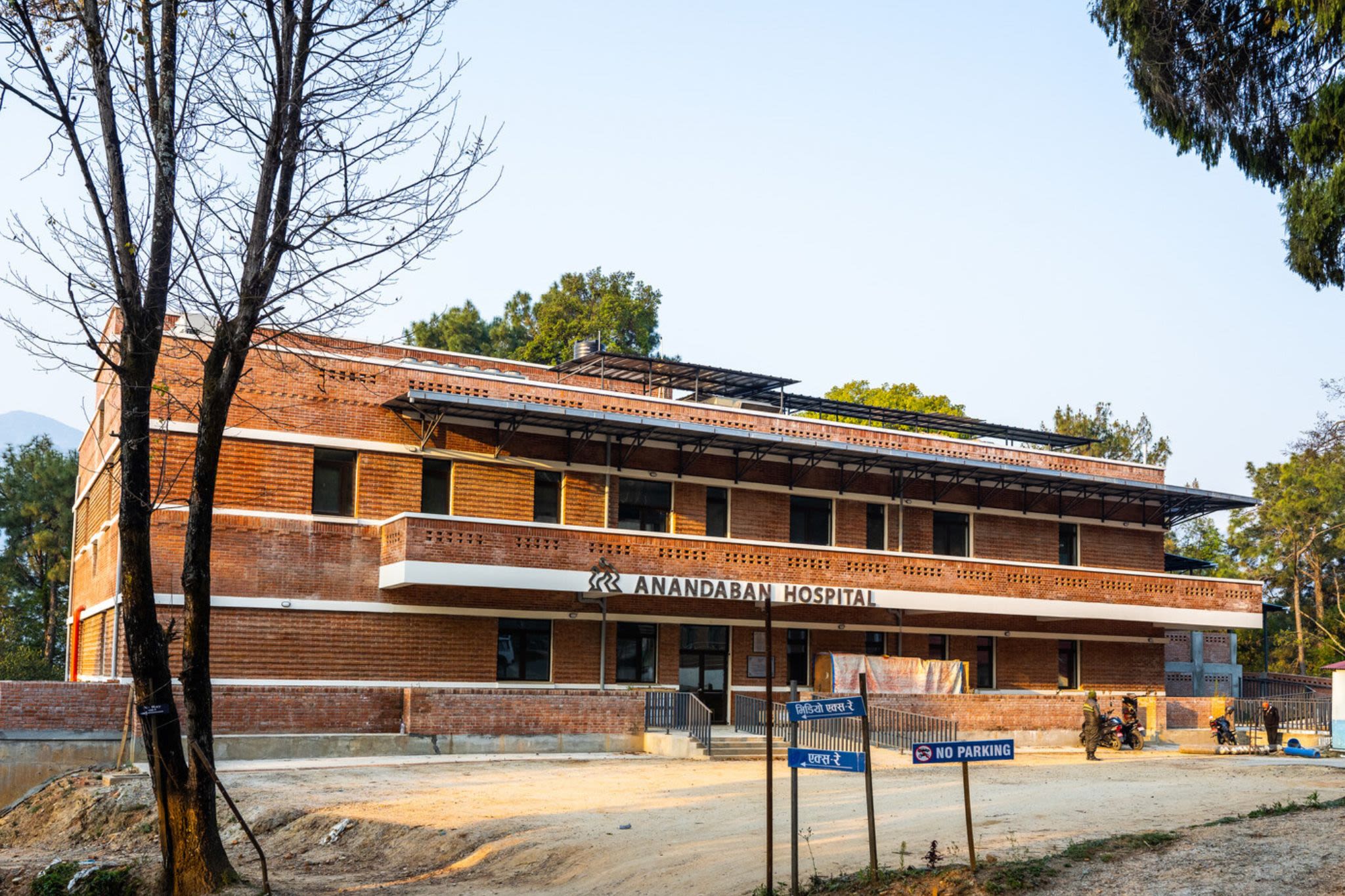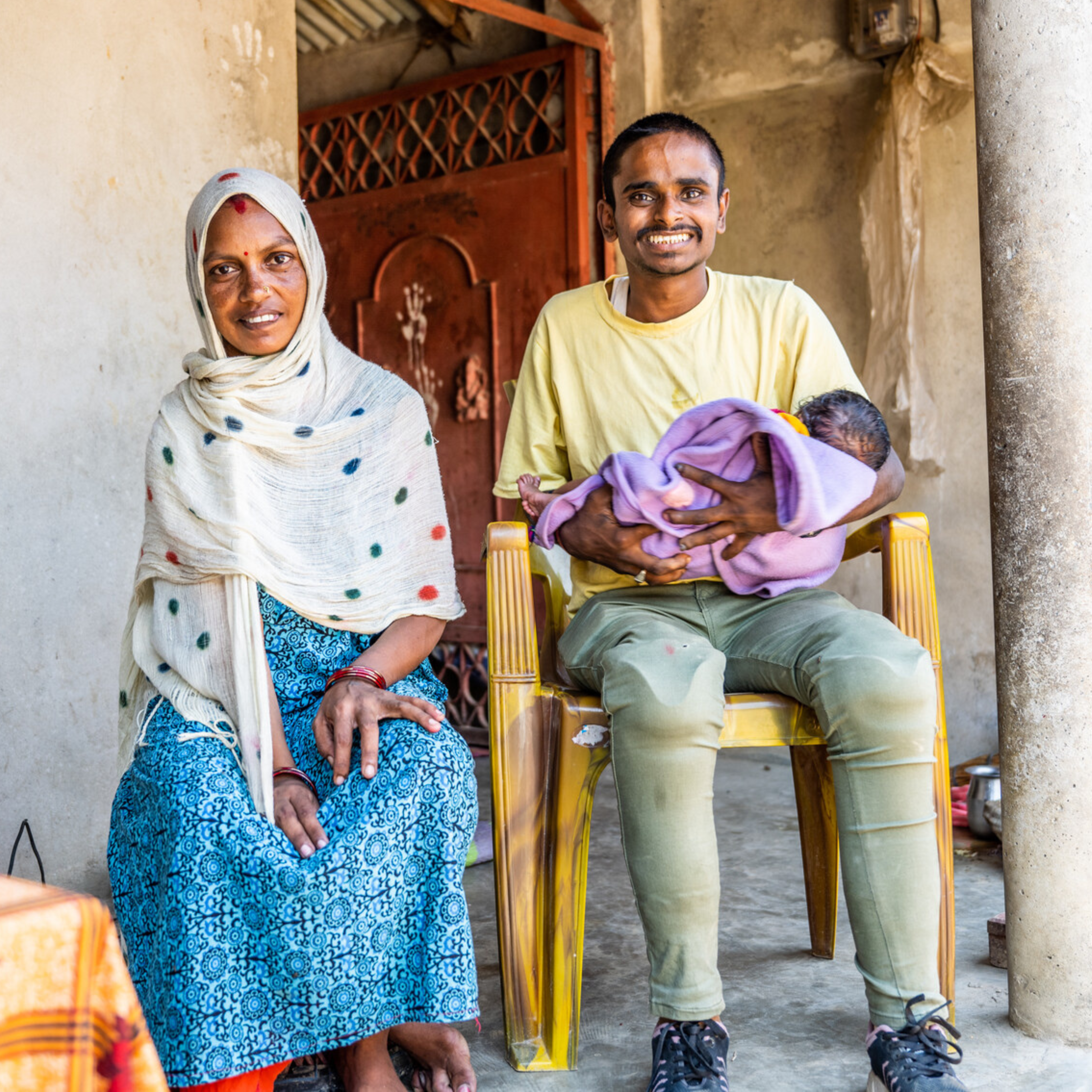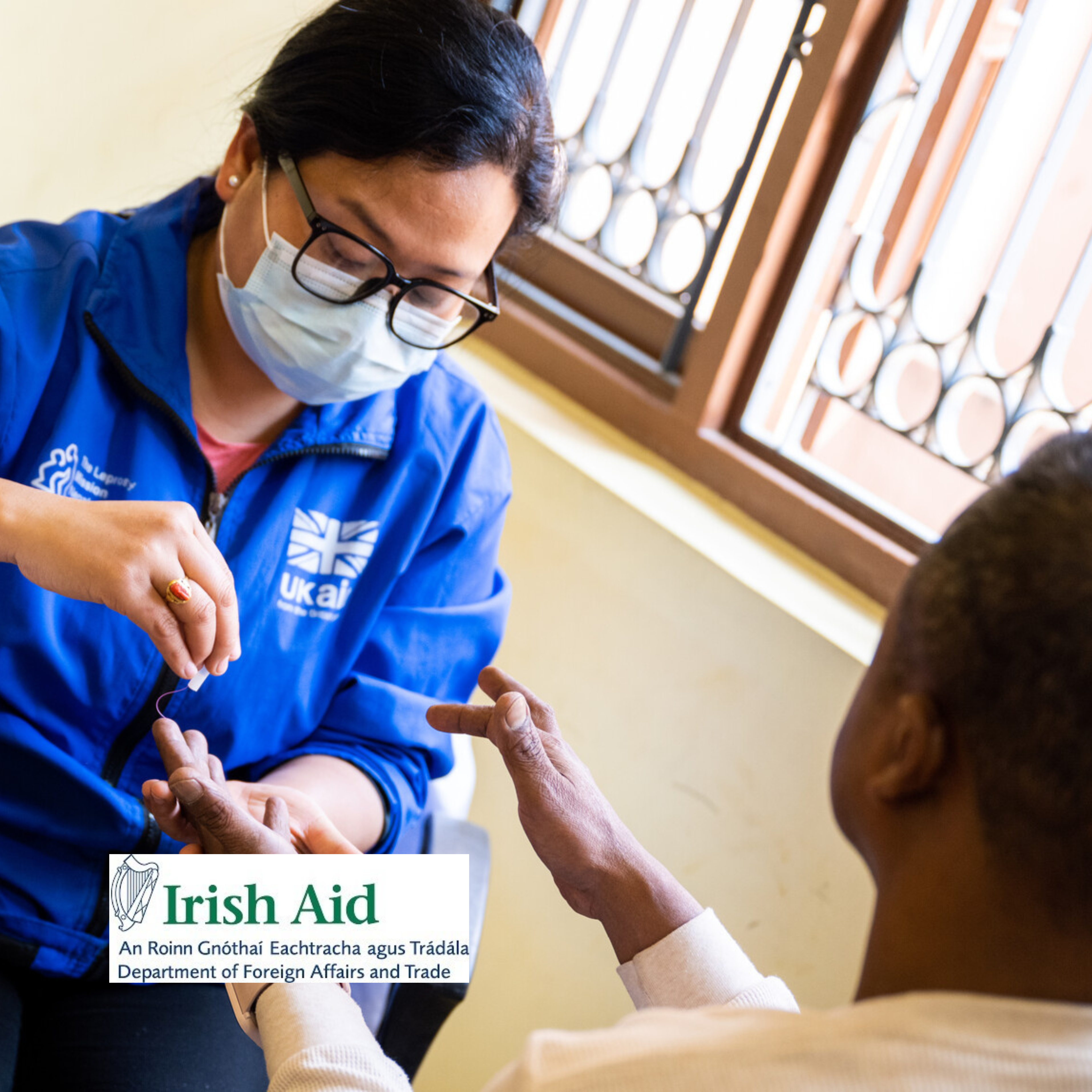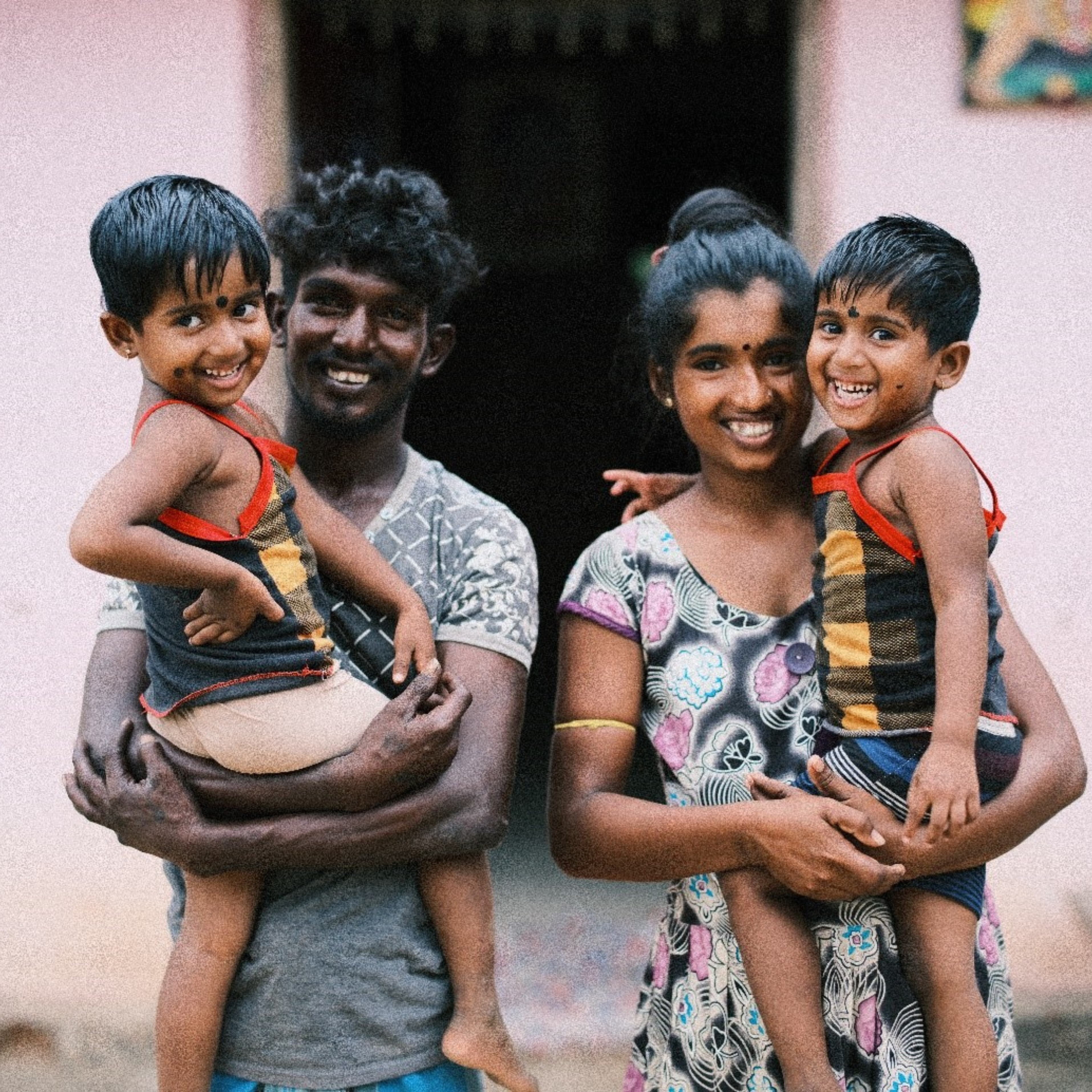Your impact in Asia
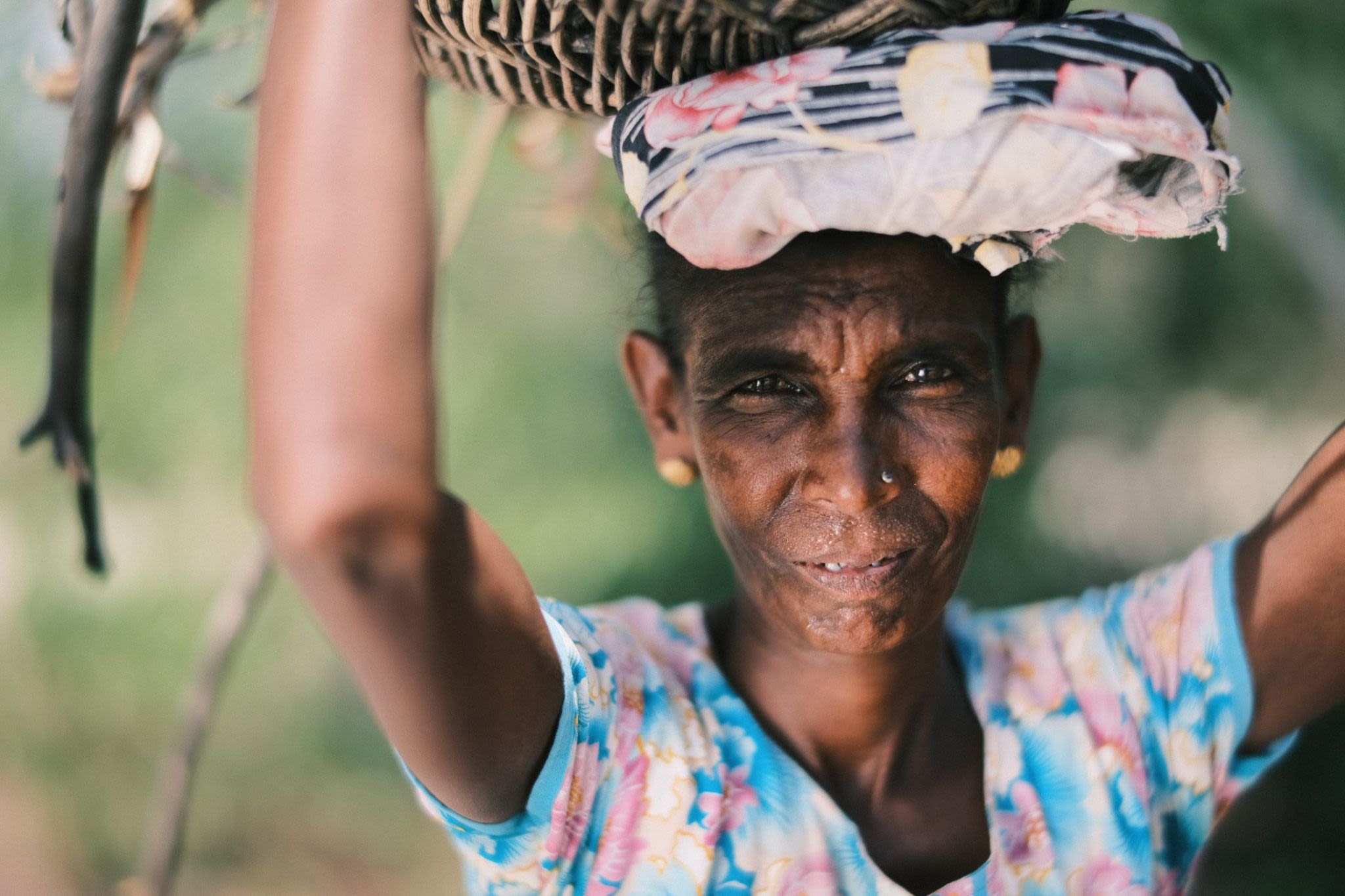
Flourishing health and flourishing lives!
Leprosy is being uprooted from the picture-perfect tea gardens of Bangladesh. This is thanks to your amazing support for the ‘Flourish’ campaign in 2023.
It was in the tea estates of Bangladesh that medics uncovered the highest rate of leprosy seen globally by our teams. While the tea gardens flourished, leprosy had taken root among its workforce. Leprosy wasn’t just hiding among the tea pickers, but also in their families and communities. Even the smallest children were found with early signs of the disease.
A mainly female workforce handpicks the tea leaves. Their triangular hats can be seen bobbing above the neat rows of tea bushes as they toil. It's nimble work as they toss the emerald leaves into large wicker baskets carried on their backs.
If left untreated, leprosy can rob the tea workers of everything they know and love. The nerve damage it causes means fingers can’t straighten or grip the leaves. When this happens, you can’t pick as quickly as before. Paid per kilogram of leaves, loss of income affects the whole family. Without the cure for leprosy, the disease progresses until all feeling is lost in both hands. Tragically this not only means you lose your job, but potentially the family home which is provided by your employers.
We are so thankful to supporters for taking a stand against this injustice. It is because of you that more Leprosy Mission teams could be deployed to the tea gardens in 2023. The teams ran six pop up clinics, encouraging tea pickers and their families to come for check-ups. In total, 189 new cases of leprosy were found and cured during the year, including 16 children.
Thanks to the Flourish campaign, 47 new self-help groups were set up in the tea gardens. The groups work to prevent disability among the tea workers and offer support. Your compassion also provided specialist treatment for people like Protap, enabling them to return to work and independence.
Above: Friends Dalamar and Adamarvili were diagnosed with leprosy on the same day. (© Ruth Towell)
Left: Aloka is picking tea again after doing physiotherapy to restore mobility in her hand. (© Ruth Towell)
Below: Thanks to you, tea garden worker Protap has had reconstructive surgery, and is able to work again. (© Fabeha Monir)
Protap's story
We thank you so much that you have brought Protap to a place of recovery. Your kindness means the 30-year-old had reconstructive surgery to restore movement in his left hand.
Protap was happy driving a tractor in the tea gardens. He had just married Shanti, who works as a tea picker. As employees, the young couple were given a basic home on the tea estate.
Protap and Shanti had only been married for a few months when leprosy took a firm grip on his life. Protap was aware that something had been wrong for a while. He had sought medical help on several occasions. But each time his leprosy went undetected.
Protap was finally diagnosed by a Leprosy Mission health worker during door-to-door checks in the tea garden. Sadly, the cure had come too late to prevent nerve damage to his hand. His fingers bent inwards into his palm, and he couldn’t straighten them.
The day soon arrived when his disabled fingers meant he could no longer grip the steering wheel of the tractor. He lost the job he loved so much! Desperate to work, he found another job irrigating the land. But by then leprosy had stolen all feeling in his hands. He grazed his knuckles as he worked, and the wounds ulcerated. With hands that couldn’t move or feel, Protap was unemployable.
With no income, the plans he and Shanti had to start a family were put on hold. Protap fell into a deep depression. But as he was sinking, you threw him the lifeline he needed. Thanks to you, Protap was able to have the reconstructive surgery he so desperately needed. It is so wonderful to tell you that after a course of physiotherapy, movement in Protap’s hand has been restored!
Through your kindness, Protap has also received support to improve his mental health. He has joined a Leprosy Mission self-help group and is a great encourager to others walking a similar path. Happily, he is now working again, this time as a security guard on the tea estate. Thank you so much for restoring Protap's dignity and giving him and Shanti their future back.
Protap says, “I would like to express my gratitude to everyone who has helped me. It means people like me can have proper treatment and live a healthy life. Because of you our families survive."
Training a new generation of nurses
We are so happy to tell you that India's first leprosy nursing college opens in September! Thank you so much for safeguarding the future of leprosy care in India. Because of you, the brand new Salur Nursing College building is now complete!
In a country that is home to more than half of the world's leprosy cases, this nursing college is desperately needed. The Leprosy Mission runs 14 hospitals in India, all of which need specialist nurses. The graduates of Salur Nursing College will be ideally placed to fill such vacancies. Not only will they have exemplary clinical skills, but a heart for people affected by leprosy.
Our 14 hospitals across India have never been so full or their medical teams more stretched. Many nurses are approaching retirement, and we need to attract and train the next generation. Thank you so much for recognising this need and ensuring people affected by leprosy in the future receive the care they deserve.
A place on the four-year course at Salur Nursing College is a wonderful opportunity! The selection process for the first intake of students is now underway. A new intake of 60 trainee nurses will follow each year until the full capacity of 240 students is reached. Priority places will be awarded free of charge to young people affected by leprosy. An old building at Salur Hospital is currently being converted into student accommodation. It will be ready in time for September's students as they excitedly embark on their new careers.
Above: Dr Grace Patta is the Principal at Salur Nursing College. (© Sabrina Dangol)
Below: Nurse Irene is preparing for retirement after 38 years of service at Salur Hospital in Andhra Pradesh. (© Sabrina Dangol)
Nurse Irene's story
Head Nurse Irene has served at Salur Hospital for 38 years. Irene, 57, feels blessed to have had such a long and happy career at Salur. Coming from a poor family, it is something she never thought possible during her school days. She says it is only through God and the generosity of supporters that she was able to have the career she loves so much.
Irene always dreamed of becoming a nurse. Her mother worked hard as a seamstress and somehow managed to send her five children to school. But there was certainly no money for higher education.
You can imagine Irene's joy when she was awarded a place on a preliminary nurse training course! It was given free of charge by The Leprosy Mission's Dayapuram Hospital in Tamil Nadu. But Irene soon crashed back down to earth with the realisation that she needed to pay for her board and food. She simply couldn't find the money.
Thankfully, the hospital's superintendent came to know of Irene's situation. He arranged for Salur Hospital to cover Irene's expenses during the one-year course. This was with her agreement that she'd serve at the hospital for two years afterwards. True to her word, Irene joined Salur Hospital in 1986 - and has stayed ever since!
After beginning her career as an auxiliary nurse, Irene showed much potential. So much so that she was sponsored, once again, to complete a Diploma in Nursing. She got married in Salur, the place she calls home, and now has two grown up children. Thirty-eight years later, Irene still lovingly nurses leprosy patients.
"Salur is my home," she says. "Here we serve with such happiness and compassion."
Nurse Irene has blessed the lives of thousands of leprosy patients, as well as all those who work with her. It is thanks to you that Salur Nursing College can train many more young nurses with hearts like Irene's. We can never thank you enough.
Emergency aid in the aftermath of Cyclone Mocha
Since the military seized power in a coup in Myanmar in 2021, its people have endured torrid times. Much of the country was plunged into a bloody civil war that continues to rage today. Many thousands of people have been killed. The United Nations estimates that 2.6 million people have been displaced.
This is the backdrop against which Leprosy Mission teams are working. Yet they continue to risk their lives daily to find, treat and care for people affected by leprosy. It is thanks to you that this special work can continue, even in the most hostile of environments.
As if the people of Myanmar didn't have enough to contend with, they were dealt a further blow in May 2023. Cyclone Mocha crossed the coast between Cox’s Bazar in Bangladesh and Rakhine State in Myanmar. Windspeeds were as high as 175mph, making it one of the strong cyclones on record to hit Myanmar. Mocha made landfall just north of Sittwe in the early hours of 14 May. Power lines were brought down and trees uprooted. Thousands of homes were destroyed, just weeks before monsoon season.
Severe damage was caused to The Leprosy Mission's orthopaedic workshop in Sittwe. The workshop provides prosthetics and orthotics to people with disabilities. The cyclone also devastated the homes of 13 staff members.
It is thanks to trusts and individuals that the team in Myanmar was able to provide emergency aid. As the area is subject to much fighting, aid response included people living in three Internally Displaced People camps.
Food parcels, clean drinking water and blankets were given to 1,428 people from 251 families. The families also received first aid and hygiene packs. A total of 550 people were given raincoats to protect them from the monsoon rains that followed. A total of 24 toilets were provided to families affected by leprosy and disability.
Thank you to Jersey Overseas Aid, The CBR Trust, The Fulmer Charitable Trust, the Cassell Charitable Trust, The David Lister Charitable Trust, The AMG & ANM Trust,Tthe Westmark Trust, The Paget Trust, and The Belacqua Charitable Trust. We are so grateful to our supporters for continuing to change lives in Myanmar.
Right: Emergency aid is distributed in the aftermath of Cyclone Mocha.
Hope on a high hilltop
High on a hilltop in the Himalayan foothills of Nepal stands Anandaban Hospital. Anandaban, our flagship hospital, is so impressive today. No longer is it a little hospital on the outskirts of Kathmandu where people were once banished to. Now it is a true centre of excellence. The hospital site is home to pioneering research needed to end leprosy once and for all.
A world-class trauma centre has recently opened its doors on the campus. In 2023, the hospital's medical team cared for 1,726 inpatients and 46,673 outpatients. Despite the staggering numbers, each patient was welcomed, loved and given the best possible treatment. We are so proud of what you have achieved through your giving at Anandaban. We can never thank you enough.
Anandaban means 'Forest of Hope' in Nepali. This is so apt as the hospital epitomises hope for so many of its patients. In fact, many refer to the hospital as ‘my parents’ home.’ In Nepali culture, even more so than in the UK, your parents’ home is a place where you are always accepted. A place where you are welcomed and loved unconditionally. Sadly, prejudice surrounding leprosy means this is not the case for many patients. But, because of you, these patients have Anandaban as their 'parents' home'. A place of refuge and a lifeline thrown during the toughest of times. This is such a special gift.
Nerve damage caused by leprosy means one in five leprosy patients develop ulcers. If the ulcers are left untreated, they can lead to serious disability and amputation. People affected by leprosy often have frequent hospital stays to treat severe ulcers. The average hospital stay for an ulcer patient is five to six weeks. Santosh, pictured, is a young man who has spent much of his life at Anandaban. Listening to him tell his story, the affection he has for Anandaban and its staff is palpable.
Above: The new trauma centre at Anandaban Hospital, built thanks to your generosity. (© Trevor Grant)
Below: Santosh, a double amputee and much-loved leprosy patient at Anandaban Hospital, is pictured with his wife Manju and baby daughter. (© Trevor Grant)
Santosh's story
Santosh has been cared for at Anandaban since the tender age of seven. His mother took him to a health post when he was four with an ulcer on his foot which simply wouldn't heal. He was given dressings but not the one thing he needed, the cure for leprosy.
Santosh was taken to Anandaban for specialist care when his leprosy was eventually diagnosed. His wounds were soon so severe that he needed to have both lower legs amputated to save his life. Santosh spent more of his childhood at Anandaban than at home.
You and the team at Anandaban have been with Santosh at every step of his journey to rebuild his life. It is thanks to you that Santosh was fitted with two bespoke prosthetic limbs so that he could walk again.
The team even adapted a motor scooter to help Santosh balance when starting and stopping. As you can see, through your gifts, they worked so hard to do all they could to help Santosh prosper.
While Anandaban is always home and a blessing to Santosh, he is in turn a blessing to the staff team. They feel so encouraged by his broad smile and 'can do' spirit.
They were so happy when he married Manju, who is also disabled and has cerebral palsy. There was a big cheer when they heard Manju had given birth to a baby girl in March 2023! She is a beautiful baby and Santosh's eyes light up whenever he is with his daughter.
In 2023 outreach work was carried out by the medical team at Anandaban in seven districts of Nepal. Their aim was to find and treat leprosy in its early stages. Noone needs to suffer like Santosh has just because of leprosy. You are enabling us to cure people quickly before leprosy destroys nerves and steals feeling.
Together with The Leprosy Mission Northern Ireland and funding from Irish Aid, an outreach project found and cured 311 previously hidden leprosy cases in four districts. Many of the new cases were detected at six pop-up skin clinics. The team also examined 10,059 close contacts of the people newly diagnosed with leprosy. Twenty-two of these new cases were found through contact tracing. A total of 438 new patients received specialist care from the Anandaban team.
An outreach project was also launched in three districts during the latter half of 2023. Already 83 new leprosy cases have been found and treated. It is so wonderful that this work is raising awareness about leprosy and preventing disability through fast treatment.
Left: An outreach project in Nepal is finding and curing people of leprosy, enabling them to get the healthcare they need before the disease destroys lives. (© Trevor Grant)
Clean water and renewed health thanks to you
It is no coincidence that the last indigenous leprosy case in the UK was recorded in 1798. This followed a time when great strides were made in public health and sanitation. No longer were people's immune systems weakened from living in squalid conditions. Happily, leprosy was finally consigned to the history books in the UK.
Unfortunately, across Asia and Africa it is an entirely different story. On first glance, Sri Lanka's beautiful palm-tree lined beaches paint a picture-perfect postcard. Yet it doesn't take long to see the toll of neglect a bloody 25-year civil conflict has left on its people.
Gifts from supporters funded leprosy screening for thousands of people in Sri Lanka in 2023. As a result, 310 people were diagnosed and treated for the disease, 39 of whom were children. As the bacterium causing leprosy is very slow growing, it is a real red flag when a high number of child cases are found. It shows that leprosy has taken a firm grip on the whole community.
Below: Ajai and Thibekka, and their twin girls Kavina and Kabitha, are now living healthier lives with a clean water supply and a toilet of their own. (© Tom Price)
Thibekka and Ajai's story
When visiting villages like the one in which Thibekka and Ajai live, it is clear how leprosy spreads rapidly. The young couple live in Batticaloa in Northeastern Sri Lanka. They were found to have leprosy during door-to-door screening. On top of their own diagnosis, the young parents stoically faced the news that their tiny twin girls had leprosy too. It was the hardest day. But having taken the treatment, we are happy to tell you that no family member has been left with any lasting damage.
Thibekka and Ajai and their neighbours didn't have a toilet or access to running water. Every day someone from each household would walk long distances to collect water. The water wasn't always clean, but it was the only water they could get.
Without toilets, the children in the village would have to stop in the fields on the way to school to relieve themselves. This was not just an indignity but a real public health problem.
Through the gifts of our amazing supporters, Thibekka and Ajai received a well and a toilet in 2023. They now have a clean water supply and sanitation. It is because of you that these basic needs, that we so often take for granted, have been met.
Another 20 families were also given a toilet in 2023 and 24 wells have been dug. As a result, hundreds of people now have access to a clean water supply.
Thank you so much for providing these life-changing gifts to the people of Sri Lanka. Because of you they are living healthier lives and have stronger immune systems to fight disease.

